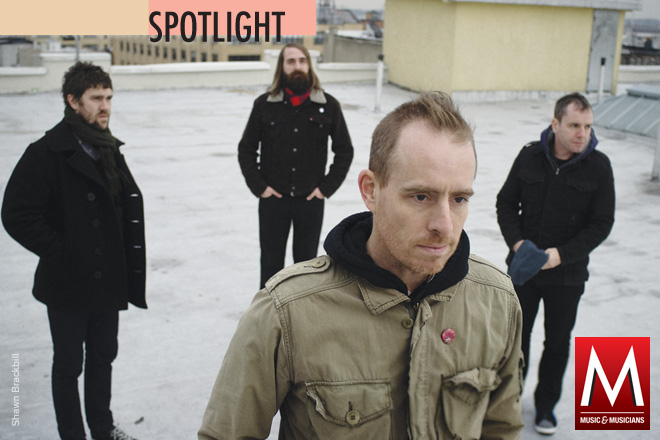TED LEO & THE PHARMACISTS
How a lack of inspiration helped at least one band avoid disaster
If things had gone as planned, Ted Leo & the Pharmacists would have released a new record last year just weeks before their label at the time folded—which would likely have doomed the album to failure. Fortunately, things didn’t go as planned.
“We actually started recording and wound up feeling like it just wasn’t coming together,” Leo says. “We had some songs that seemed done but something was not clicking.”
So the New Jersey punk rocker and his band shelved the tunes they had been working on and spent the next year outside the oft-grueling record-release-tour cycle. That repetitive grind, Leo says, can “impede your writing process and diminish your love and appreciation for what you’re doing.”
When the Pharmacists finally hit the studio again they were recharged and emerged with The Brutalist Bricks, 13 scorching new songs overflowing with their trademark blend of brains, heart and wit. “I think falling out of that cycle helped us come together as a band,” Leo says. “We came up with an album that felt like it could breathe a little bit more than what we were producing the previous year.”
All that down time also helped Leo to learn to trust his songwriting instincts. “I’m always conscious of wanting to nail that vibe, but sometimes it’s hard for me to realize when I’m there,” he explains. “I think it took me being so far out of the loop to be able to hear something that I’d started and actually be satisfied.”
That’s not to say that the songs he wrote turned out the way he thought they might when he started writing them. “There’s a big gray area between personal songs, political songs and relationship songs,” Leo says, laughing. “Every time I start out with an idea that’s not political in nature, it winds up getting into politics along the way—and vice versa.”
He cites as an example the new album’s “Ativan Eyes.” “That is one of the most straight-up interpersonal relationship songs I’ve attempted to write,” Leo says. “At some point—I don’t know how it happened—the whole first verse came to be about the music industry, using communist and narco-socialist language to describe how the means of production are in the hands of the workers.
“It’s just meant to be a relationship song, but I can’t express it except in terms like that.”
–Eric R. Danton




comment closed